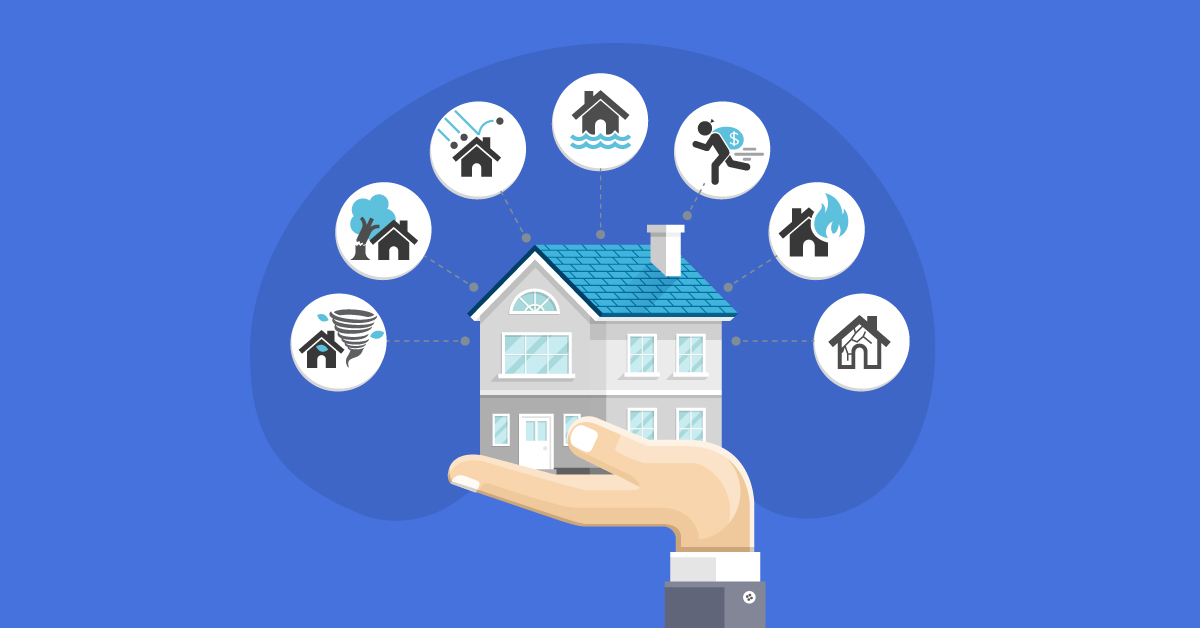As modern Americans, many of us depend on our appliances to get through our day-to-day lives. From dishwashers to microwaves, these devices can make life easier. But when an appliance stops working properly, the costs associated with repairing or replacing it can quickly add up. As such, having appliance insurance in place has become a growing trend in recent years. Here’s what you need to know about this type of coverage and whether it’s right for your needs.
What Is Appliance Insurance?
Appliance Insurance is a special type of insurance designed to cover the cost of repairs and replacements for certain major home appliances if they ever break down or stop working properly due to normal wear and tear. Most policies will provide coverage for common household items like refrigerators, dishwashers, stoves/ovens, washers/dryers, freezers and microwaves—though some variations may include other items such as water heaters or HVAC systems.
The amount of coverage provided by most policies typically varies depending upon the age and condition of your appliances—which means that you’ll have some financial assurance should any issue arise down the road. Generally speaking, most policies will require you to pay a deductible before they kick in; however, this amount is usually relatively low compared to the overall cost of a replacement or repair job. Additionally, as long as you meet your policy’s requirements (such as regular maintenance check-ups), some insurers may even offer discounts on their premiums!
Different Types of Coverage for Appliance Insurance

There are several different types of coverage available when it comes to appliance insurance. These include:
Replacement Cost Coverage
This type of coverage pays the cost to replace an appliance in the event that it is stolen, damaged, or destroyed beyond repair.
Pros:
Provides full protection against theft, damage or destruction beyond repair.
Cons:
Typically, the cost for replacement cost coverage is higher than other types of coverage.
Average Cost:
The average cost of replacement cost coverage will depend on the total value of the appliances covered by the policy.
Repair Cost Coverage
This type covers the costs to repair an appliance after it has become malfunctioned due to normal wear and tear. It also covers any labor costs associated with the replacement of parts or components.
Pros:
It tends to be less expensive than replacement cost coverage, as it only covers repair costs associated with malfunctions due to normal wear and tear.
Cons:
Repair cost coverage does not cover repairs when an appliance has been stolen, damaged, or destroyed beyond repair.
Average Cost:
The average cost for repair cost coverage is usually significantly lower than replacement cost coverage, depending on the age and condition of the appliance being covered by the policy.
Accidental Damage Coverage
This type of coverage pays for repairs to your appliances caused by accidents or acts of nature such as fire, flood, lightning, or wind damage.
Pros:
Accidental damage coverage offers homeowners peace of mind in knowing that they are protected if their appliances are damaged due to accidents or acts of nature such as fires or floods.
Cons:
It doesn’t provide any protection against theft or intentional destruction. Additionally, coverage may exclude certain causes, such as water damage caused by a leaking sink pipe or slow drain clogs.
Average Cost:
The average monthly premium for accidental damage insurance depends largely on where you live and which provider you use. Typically, this type of policy can range from $7-20 per month per appliance.
Extended Warranty Coverage
This type of coverage extends the manufacturer’s warranty on a particular appliance, allowing you additional protection against future malfunctions or breakdowns.
Pros:
Extended warranty coverage offers extra protection for more expensive appliances like washing machines, refrigerators, stoves, etc., that may still have warranties from the manufacturer but have expired or are about to expire soon.
Cons:
Extended warranties typically don’t provide any protection against accidental damage or theft. Additionally, some extended warranty plans may require a deductible before they begin covering any expenses incurred with repairs.
Average Cost:
The average price for extended warranty plans vary depending on the appliance and the length/scope of coverage desired. However, most providers offer their plans at prices ranging from $50-200 per year per appliance.
Do You Need Appliance Insurance?
Whether or not you need appliance insurance really depends upon your situation and budget constraints. If you’ve recently purchased newer appliances that are still covered by their manufacturer’s warranty, then the additional expense associated with an insurance policy might not be necessary at this time. However, if your appliances are approaching the end of their warranty period, are already out of date, or if you simply want added peace of mind in knowing that potential repair costs are taken care of, then investing in an insurance policy could be beneficial.
Additionally, if you’re living on a tight budget, one malfunctioning appliance could put quite a strain on your finances. Having an insurance policy in place could help alleviate some (if not all) of this stress if something goes wrong down the line. Ultimately though, each person must make their own decision about whether or not appliance insurance is worth adding to their budget at this point in time!
Top Companies Offering Appliance Insurance
There are numerous companies out there offering various forms of home appliance coverage―including those from national providers like State Farm and Allstate―as well as independent providers specific to certain regions (e.g., Westgate Insurance Agency). Be sure to do your research before selecting an insurer so that you can find one that aligns best with your needs both now and moving forward!
How to Choose the Best Provider For Your Family
When it comes to choosing the best home appliance insurance company, there are a few key factors to consider. Here are some tips for finding the right provider:
Evaluate Coverage Options
Before signing up for any policy, make sure that your desired coverage is included in the plan – such as replacement cost coverage, repair cost coverage, accidental damage coverage, and extended warranty coverage.
Compare Prices
Different companies offer different rates for their policies. Therefore it is important to compare prices between providers and make sure you are getting the best deal for your money.
Read Reviews
Reading reviews from other customers can provide insight into which companies offer the best customer service and how quickly they respond to claims.
Check Financial Stability
Make sure that the company you choose is financially stable and has a good rating with consumer review sites such as A.M. Best or Standard & Poors.
By evaluating your options carefully and researching each company thoroughly before making a decision, you can find an appliance insurance policy that fits your needs and budget perfectly!
Pros and Cons of Appliance Insurance
When you purchase a home appliance, you hope it will last for many years before needing to be replaced. Unfortunately, appliances do break down from time to time.
Appliance insurance can help cover the cost of repairs or replacements if your appliance breaks down. Let’s take a look at some of the pros and cons of having this type of coverage:
Pros:
- It can reduce or eliminate out-of-pocket costs associated with repairs or replacements.
- Coverage may be transferable to new owners if you decide to sell your home.
- Some plans offer additional features such as extended service warranties or discounts when purchasing new appliances.
Cons:
- The coverage is an additional cost on top of what you already paid for the appliance.
- Not all repairs are covered by appliance insurance policies; certain conditions may apply.
- Even covered repairs may have co-payments, deductibles, or coverage limitations that need to be met.
Frequently Asked Questions About Appliance Insurance
Here are some of the most common questions people ask about appliance insurance.
What types of appliances are covered?
The most common items covered by this type of policy include refrigerators, washing machines, stoves, dishwashers, ovens, microwaves, and dryers. In addition to larger home appliances, coverage may extend to smaller ones, such as dehumidifiers and air conditioners. Some plans may also include coverage for certain outdoor items, such as pools and hot tubs.
Is my coverage transferable?
Yes, many insurers offer transferable coverage so that if you decide to sell your home, you can easily transfer the policy over to the new homeowner.
What type of maintenance is required?
Generally, regular maintenance must be performed on an appliance in order for it to remain covered by your policy. This could include cleaning filters and other parts of the machine, as well as checking for any potential problems or malfunctions.
Are there deductibles or copayments?
Depending on the terms of your policy, there may be a deductible or copayment that must be paid in order for your claim to be accepted by the insurer.
Does my homeowner’s insurance cover appliance repairs?
Typically, no. While homeowner’s insurance covers household damage caused by disasters such as fires or floods, it does not extend its coverage to appliance repairs due to regular use/wear-and-tear over time. That being said, always check with your provider first just in case they offer any add-on options that extend beyond basic coverage!
How much does appliance insurance cost?
Your premium really depends upon which insurer you’re looking at—each company offers its own unique features/premium rates based on factors such as location & property value, etcetera. Therefore, don’t opt for the first policy you find. Rather, call around and get comparisons prior to purchasing to find something that best suits you.
Appliance Insurance: Insurance of the Future?
Although appliance insurance can provide an added layer of protection to cover unexpected repairs and replacements, it’s important to understand the terms and conditions of your policy before signing up. Be sure to weigh the pros and cons, consider the type of coverage offered, and any deductibles or copayments you may be responsible for paying. Taking the time to understand what is covered by your policy can ensure that you, as a homeowner, are making the right decision when it comes to protecting your appliances now and in the future.
Related: How to Shop for Home Insurance and Different Levels of Coverage





